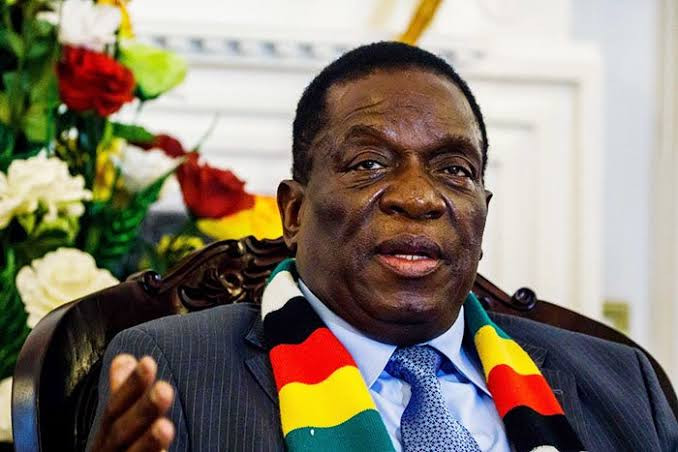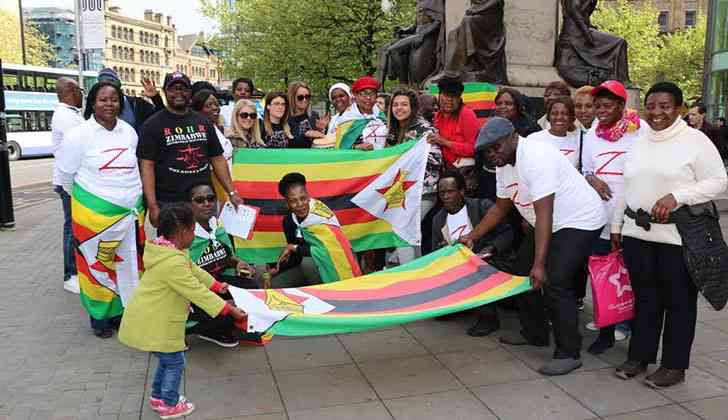
THERE is something that happened in Zanu PF in 2017. The play is about to be staged in a court of law.
So many skeletons will pop out of the political cupboard. It is understandable why President Emmerson Mnangagwa and his team do not want live-streaming of the court proceedings.
After the 2017 coup, Zanu PF did not only shred the national Constitution, but it also trampled on its constitution. Mnangagwa’s rise was unorthodox.
In terms of the national Constitution, then Vice-President Phelekezela Mphoko was supposed to act as President until the party recommended someone else to Parliament.
Zanu PF as the ruling party should have held an extraordinary congress to elect a new leader.
All these processes were fast-tracked and Mnangagwa woke up at the helm of the party. Thanks all to the power of the barrel of the gun. It was a coup.
However, among some members of Zanu PF, there were those who called for the sticking to the party constitution.
Among them is Sybeth Musengezi. Musengezi, aggrieved by the unprocedural appointment of Mnangagwa, has approached the High Court, the court with unlimited jurisdiction in the land. It can hear any matter.
- Mavhunga puts DeMbare into Chibuku quarterfinals
- Ndiraya concerned as goals dry up
- DeMbare’s double boost
- ‘Zifa suspension won’t affect player transfers’
Keep Reading
Musengezi, in his founding affidavit, argues that Mnangagwa’s ascendancy to the presidency of Zanu PF was illegal.
He wants the court to find the process flawed and ask the party to follow its constitution.
His court challenge has raised fire and brimstone within the party. Others have gone ballistic, accusing the youth league member of being sponsored by disgruntled G40 members.
He has since then been persecuted, dragged to courts on trumped-up charges and some even claimed he was never a member of the party.
However, the courts have ruled he has the locus standi. He can litigate in this matter.
In other words, Musengezi is a bonafide member of Zanu PF. His being sent by G40 is a matter of political conjecture.
The High Court has since set October 3, 2022 as the date for the hearing in Harare. It should be put into context that Goodson Nguni, a former commissioner at the Zimbabwe Anti-Corruption Commission (ZACC), has since applied and been granted permission for a jointer in the case. Nguni wants to be part of the defendants in the case.
Curiously, Nguni was a ZACC commissioner at the time the coup took place. Commissioners are not allowed to be active political party members by the Constitution.
It stands to be questioned how he came to know about the goings-on in Zanu PF. The answer is foul, it stinks to high heavens.
Some independent commissioners do dabble in party politics and are not ashamed to remove their party jackets and speak openly in court.
Musengezi, being a Zanu PF member, knows how the party has manipulated the media in the past.
He wants the trial to be broadcast live so that all party members and other interested parties can hear the case for themselves.
Musengezi’s lawyer Nqobani Sithole said everyone must have access to the proceedings.
“Tomorrow, we are coming back to make an application that we want this matter on the 3rd of October to be live-streamed so that everybody has access to it. Remember Zanu PF is a big and colossal party so they say, so whatever transpires in that court should be known by everybody and, therefore, it is our considered view that it will be in the best interest of everyone,” Sithole said.
This is a fair point, after all, justice should not only be done, but it must be seen to be done.
In many jurisdictions across the world, important cases are now being live-streamed.
For good measure, this case meets the criterion to be eligible for live-streaming.
Unsurprisingly, Nguni is opposed to the trial being live-streamed.
“We want all the journalists in the courtroom, and you write what you see, but you cannot live-stream, they want to politicise it.
“We cannot allow them to continue political grandstanding to damage our party and he can afford to do that because he (Musengezi) is not a member of our party,” Nguni said.
Even if Musengezi loses this application for live-streaming of the trial, it is incumbent upon the media to make an application to the court, because it is of public interest.
Mainstream media in Zimbabwe should rise to the occasion, be pro-active and seek this permission early.
The case has far-reaching consequences nationally, especially if Musengezi’s argument is upheld by the court.
As an aside, this is not the first case the High Court has ruled on succession within political parties.
In 2019, the Supreme Court ruled Nelson Chamisa’s ascendancy to the helm of MDC Alliance then was done outside the party’s constitution.
It is easier to understand why Zanu PF does not want it live-streamed.
Actually, it really never wanted this case to be before the courts. Now that it is there, we will not be surprised that they may even suggest that the evidence should be led in camera.
To conclude this case just like the MDC Alliance one will help entrench intra-party democratic values.
It will make many appreciate the value of constitutionalism. Never again should popularity or power be abused to circumvent constitutions.
This is a lesson that will come with pain to some, particularly those who are close to the top table and may lose their influence.
However, robust debates and upholding of the constitution should be the guiding light.
Hopefully, the High Court will not reserve judgment until after the 2023 elections.
- Paidamoyo Muzulu is a journalist based in Harare. He writes here in his personal capacity.










